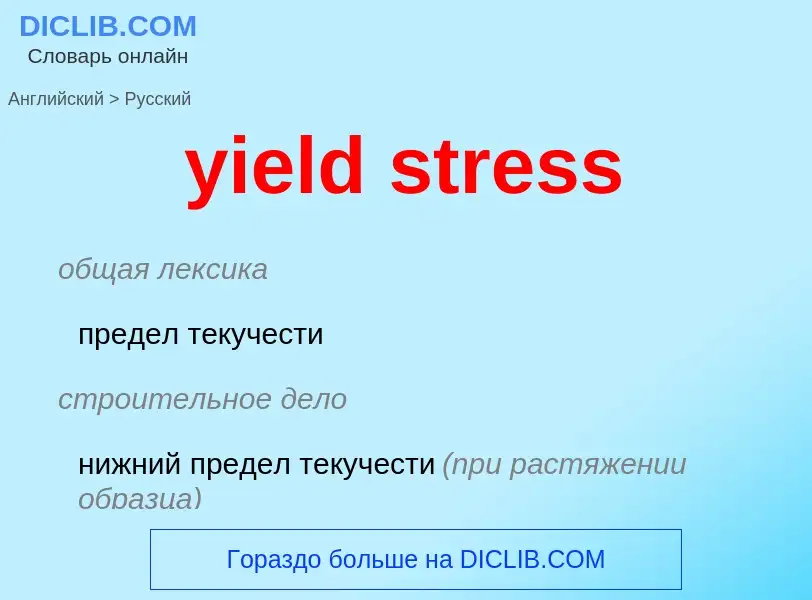Перевод и анализ слов искусственным интеллектом ChatGPT
На этой странице Вы можете получить подробный анализ слова или словосочетания, произведенный с помощью лучшей на сегодняшний день технологии искусственного интеллекта:
- как употребляется слово
- частота употребления
- используется оно чаще в устной или письменной речи
- варианты перевода слова
- примеры употребления (несколько фраз с переводом)
- этимология
yield stress - перевод на русский
общая лексика
предел текучести
строительное дело
нижний предел текучести (при растяжении образца)
нормативный минимальный предел текучести
нормативный условный минимальный предел текучести
Определение
Википедия
In materials science and engineering, the yield point is the point on a stress-strain curve that indicates the limit of elastic behavior and the beginning of plastic behavior. Below the yield point, a material will deform elastically and will return to its original shape when the applied stress is removed. Once the yield point is passed, some fraction of the deformation will be permanent and non-reversible and is known as plastic deformation.
The yield strength or yield stress is a material property and is the stress corresponding to the yield point at which the material begins to deform plastically. The yield strength is often used to determine the maximum allowable load in a mechanical component, since it represents the upper limit to forces that can be applied without producing permanent deformation. In some materials, such as aluminium, there is a gradual onset of non-linear behavior, making the precise yield point difficult to determine. In such a case, the offset yield point (or proof stress) is taken as the stress at which 0.2% plastic deformation occurs. Yielding is a gradual failure mode which is normally not catastrophic, unlike ultimate failure.
In solid mechanics, the yield point can be specified in terms of the three-dimensional principal stresses () with a yield surface or a yield criterion. A variety of yield criteria have been developed for different materials.

